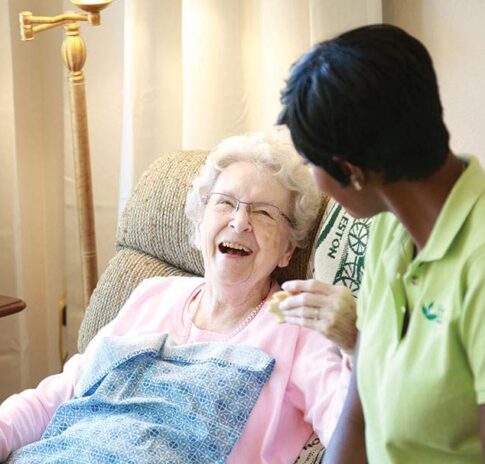Today we bring you another guest post from Joni Aldrich, renowned author and speaker.
The expression “sticks and stones may break your bones, but words can never harm me” is not true. When you’re fighting for your life against cancer or any critical illness, words can make all of the difference in the world.
For Gordon and I, the first “I don’t believe you just said that!” moment came during the initial visit to his oncologist. We had found a treatment facility for his type of cancer in Little Rock, Arkansas. When we asked that first oncologist about a referral, he said, “I’ve never seen anything good come out of Little Rock!”
Unfortunately, we didn’t challenge that doctor’s decision. As a result, the second “I don’t believe you just said that!” statement surfaced five months later. The same oncologist called me at work and said that Gordon’s cancer treatment was now a “salvage operation.” That news sent us racing to Little Rock. By then, too much damage had been done by wasted treatments and time.
Here are a few of those “I don’t believe you just said that!” statements to watch out for. And be aware: they’re not always from a doctor.
The End of the Road Sucker-Punch. “Mr. Smith, I’m afraid there’s nothing we can do about your cancer. Put your affairs in order.” Sometimes these words are accurate…and sometimes, that’s not necessarily the case. Keep these points in mind:
1) Before you go for an appointment with your first oncologist (not necessarily your primary oncologist), realize that it is only your first opinion. Webster’s definition of an opinion is a “belief stronger than impression and less strong than positive knowledge.” Do not settle for betting your life on one opinion!
2) Cancer physicians now tend to stay away from predicting the date of your demise. They can give you the average survival rate based on facts that they should know. They can also set up a referral for your second opinion with an oncologist who is more experienced in your type of cancer.
3) Many people I talk to either have heard these words firsthand, or have had family members to receive this verdict. Some are still walking around. While there has to be a fine line between treating for the patient to survive and treating a patient when there is truly no possibility of recovery, there is always continuing research. It’s your personal choice whether to give up or keep fighting.
The Heroic Lone Ranger. “Honey, there’s no need to go to the oncologist with me today.” Tag teaming (taking back-up with you to every oncologist’s visit) is very important. Cancer is complicated; you never know what may come out of a visit to your oncologist. Decisions come in multiples and sometimes have to be made quickly. Two sets of eyes and ears are better than one, especially if the patient isn’t feeling well.
The Most-Likely-to-Succeed Proclamation. “This is the best cancer treatment center and oncologist in this area to treat your type and stage of cancer.” The key words in this statement are “in this area.” Do you want a facility that treats 50 patients with your type of cancer every year, or 350? The statistics may be surprising. While it’s nice to have a doctor you like, one who can save your life is more important.
The Blind Follower. “I’m afraid to ask questions. The medical professionals are the experts. They will keep me informed.” Maybe, but you still need to know the basics. The only stupid questions are the ones that you don’t ask. There will be an incredible amount of details. Cancer professionals have (hopefully) lots and lots of patients of which you are only one.
The Patronizing Pat on the Head. “Mrs. Smith, it isn’t important for you to get copies of all medical test results.” Insist on copies of all test results. You’re entitled to them, even if you use them to line the trashcan. You’ll start to understand the basics. When I say ‘the devil’s in the details,’ I mean it. You need the details.
The No-Big-Deal Brush-Off. “I don’t need to go in with my spouse for this. They’re just giving him a shot.” That’s not necessarily true for a cancer patient. A shot is not always just a shot. Sometimes there are bad reactions—even allergic reactions. Cancer patients take so many medications that there is always a possibility that something might go wrong. The patient and caregiver should understand all medications that are administered to the patient—even if it’s only a shot.
The Urgent Ultimatum. “Mrs. Smith, we need to perform a radical mastectomy right away. There is no time for a second opinion.” If you hear these words, weigh your options carefully. A friend who was diagnosed with breast cancer received a message on her answering machine that her oncologist had already scheduled her radical mastectomy. After an appointment with another oncologist, she had a lumpectomy instead, and today (years later) is still cancer free.
When it comes to any serious medical condition, the rule of thumb is to never let a statement, verdict, or recommendation slide without first considering it fully. If you have doubts, voice them. If you have questions, ask them. And if you want more explanation, don’t leave until you get it. In the end, your persistence might literally save your life.
About Joni’s cancer books (available at www.basketofcare.com):
The Saving of Gordon: Lifelines to W-I-N Against Cancer
Based on Joni’s experience and years of research, this inspirational and informative book is designed to give families a fighting chance in their own cancer battle.
